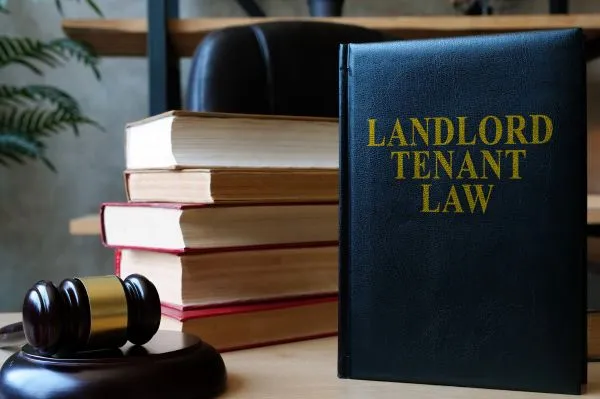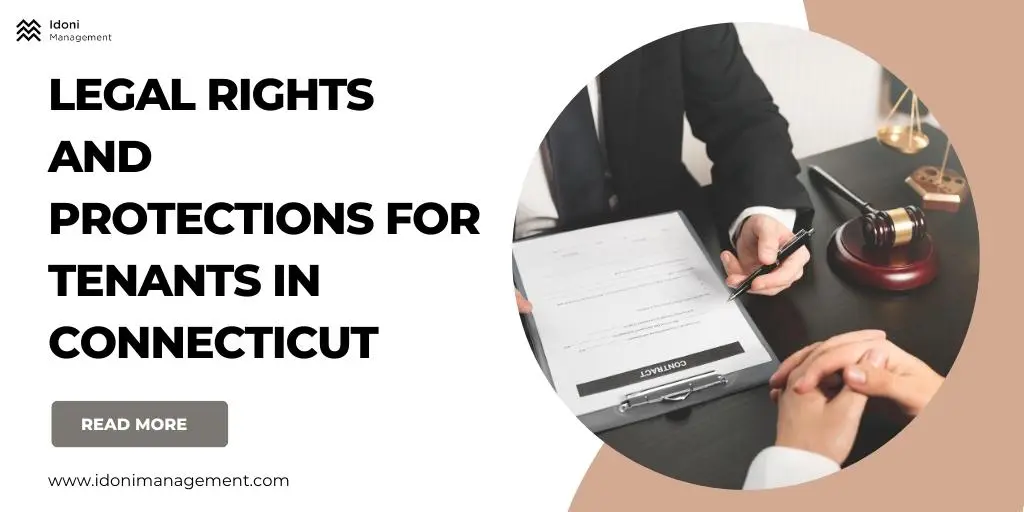Renting a home in Connecticut is more than signing a lease and paying rent; it’s about understanding your rights and protections as a tenant. In the Constitution State, tenant laws provide essential safeguards for a secure and fair living environment. In this guide, we’ll explore these rights, illuminating the legal framework that governs the landlord-tenant relationship.
Connecticut’s tenant laws establish fundamental rights, such as the right to a habitable living space, privacy, and protection against discrimination. Landlords must also furnish a written lease agreement, ensuring clarity in rental terms. Beyond the basics, we’ll delve into specific tenant rights. These encompass regulations on CT security deposits, rent control, eviction procedures, and landlord responsibilities for maintenance. We’ll discuss how to protect your rights, find legal resources and assistance, and take action if you believe your tenant rights are violated. Whether you’re a seasoned renter or new to the process, this guide empowers you with the knowledge to navigate your tenancy confidently.
Understanding Your Rights as a Tenant in Connecticut
Fundamental Tenant Rights
Connecticut law provides tenants with essential rights that form the foundation of a secure tenancy:
Right to a Habitable Living Space:

This means that your rental property should be free from significant defects and health hazards. Landlords are legally obligated to maintain the property in a condition suitable for human habitation. This means making sure that things like plumbing, heating, and electrical systems are all in good working condition.
Right to Privacy:
Tenants are entitled to privacy within their rented premises. Your landlord cannot enter your apartment without proper notice or a valid reason. Generally, landlords must give you at least 24 hours’ notice before entering your apartment, except in emergency situations.
Right to Fair Housing:
Connecticut adheres to the Fair Housing Act, which prohibits discrimination based on race, color, national origin, religion, sex, disability, and familial status. This means that landlords cannot refuse to rent to you or treat you differently based on these protected characteristics.
Right to a Written Lease Agreement:
Landlords are obligated to provide a written lease agreement that outlines the terms of the tenancy. This written agreement ensures transparency and clarity in understanding the rental terms, including rent, security deposit, and responsibilities of both parties.
Specific Tenant Rights in Connecticut
Security Deposits
Connecticut law places restrictions on security deposits. Landlords can’t charge more than two months’ rent as a security deposit, and they must return it within 30 days of the lease’s termination. This regulation is in place to protect tenants from excessive financial burdens when moving out.
Rent Control and Rent Increases
While Connecticut doesn’t have strict rent control laws, certain cities may implement rent stabilization ordinances. In the case of rent increases exceeding 10%, landlords must provide at least 90 days’ notice. This notice period allows tenants adequate time to adjust their budget accordingly.
Eviction Laws and Procedures


Tenants have legal safeguards when facing eviction. Landlords must adhere to precise legal procedures, ensuring that tenants receive proper notice and an opportunity to address any lease violations. Common reasons for eviction include non-payment of rent, lease violations, or the end of the lease term. Both parties need to understand and follow the eviction process outlined in Connecticut law.
Repairs and Maintenance Responsibilities
Landlords bear the responsibility for maintaining the property in good condition. If you encounter maintenance issues, it’s vital to notify your landlord in writing promptly. This ensures that your living space remains habitable. Common maintenance issues include plumbing problems, heating or cooling system malfunctions, and structural concerns. The landlord must address these issues promptly.
Protections Against Discrimination
Connecticut boasts robust anti-discrimination laws that safeguard tenants from housing discrimination. If you ever believe that you’ve faced housing discrimination, you have the right to file a complaint with the Connecticut Commission on Human Rights and Opportunities (CHRO). This agency is responsible for investigating claims of discrimination and taking appropriate action to ensure your rights are protected.
Finding Legal Resources and Assistance
When it comes to understanding tenant rights and addressing legal issues, it’s crucial to find the right support:
Consulting Housing Lawyers in CT
Should you require legal advice or representation, consider consulting experienced housing lawyers in Connecticut. They can assist you step by step in navigating the legal process and ensure that your rights are safeguarded. Housing lawyers are well-versed in Connecticut’s tenant laws and can assist you in various matters, including lease disputes, eviction defense, and security deposit disputes. Their expertise ensures that you have access to the necessary legal resources without worrying excessively about the cost of eviction in CT.
Steps to Take if You Believe Your Rights Are Violated
If you ever find yourself in a situation where you suspect your tenant rights are being violated, follow these steps:
- Identify Potential Violations: Take time to understand the specific rights that may be violated and gather evidence, ensuring that you’re well-prepared. Document any communication with your landlord, including emails, letters, or text messages, which can serve as crucial evidence.
- Communication with Your Landlord: Initiate a conversation with your landlord to discuss your concerns and seek an amicable resolution. Open and honest communication can often resolve issues before they escalate into legal disputes.
- Filing a Complaint: If the issue persists, consider filing a complaint with the appropriate authorities or consulting with housing lawyers in CT for professional legal guidance. Depending on the nature of the violation, you may need to contact the Connecticut Department of Consumer Protection, local housing authorities, or the Connecticut Commission on Human Rights and Opportunities (CHRO).
Conclusion
Knowing and asserting your rights as a tenant in Connecticut is paramount for a secure and comfortable living experience. From understanding fundamental rights to seeking legal assistance, this guide has covered the essential aspects of tenant rights in the Constitution State.
As you navigate your tenancy, remember that staying informed and assertive is your best defense against potential violations. Whether it’s dealing with the cost of eviction in CT or addressing maintenance issues, understanding your rights empowers you to protect your home and ensure a safe living environment.





